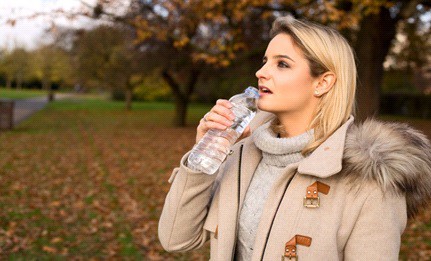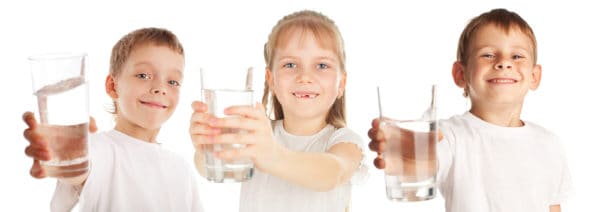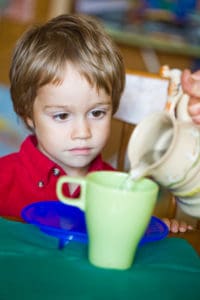It’s that time of year when temperatures are dropping and the dark nights are creeping in. During this time, many of us can fall into the habit of drinking less water. In the summer months we often feel hot and as a result we often crave a cold glass of water. However, this becomes less of a frequent feeling during the winter months as we often don’t feel thirsty.

How much water do I need to drink during the winter?
It’s recommended that we drink around 6-8 glasses of water everyday. The BDA suggest that this is around 2000ml for the average male and 1600ml for females. It’s important to note that our daily fluid intake can change based on our physical activity levels, body size and age etc.
For more information visit the NHS website (opens in new tab).
Other fluids, such as milk, tea and coffee, count towards our total fluid intake. However, water is the best choice as it’s free, contains no calories and it kind to our teeth. While the water in tea and coffee counts, it’s good to remember the following:
- Tea contains tannis which can reduce our iron absorption
- Many of us tend to add sugar to our tea which increases the risk of tooth decay
- Tea, coffee and some other sugar sweetened drinks, such as cola, contain caffeine which we should drink in moderation.
Does water have benefits during the winter too?
Our bodies are estimated to be around 70% water so drinking plenty of water is essential in any season! Studies have shown a number of health benefits to drinking water in the short and long term. Benefits include:
- Improved concentration
- Reduces tiredness (key during these dark evenings!)
- Helps prevent constipation
- Key for kidney function

How do I know I am drinking enough?
A lack of water can cause our bodies to become dehydrated. Dehydration can make us feel tired, dizzy, lacking in concentrations and cause us to have a headache. It’s normal for feelings of thirst decreasing in winter, but did you know that feeling thirsty is one of the last signs of dehydration? The colour of our urine is often a useful indicator too. The darker the urine the more dehydrated you are.
Top tips to stay hydrated in the winter
Or tips to stay well hydrated through Winter:
- Carry a reusable water bottle with you when you’re out and about
- Get in the habit of having water breaks, set yourself times and routines or even a challenge to drink more. Just like we get into the habit of brushing our teeth, we can also create habits with water
- Flavour your water if you’re not keen on the taste. Try adding different fruits, such as lemon and lime, or vegetables such as cucumber with mint
- Choose meals with a high water content, such as soups and stews (20-30% of our fluid intake comes from the foods we eat!).
Children
Unlike adults, children are not able to respond to the signals of dehydration,such as dry mouth or feeling tired. This is because children’s mechanisms for dehydration signals are not fully developed. Here are some of the things you can do in your early years setting to support children to drink:
- Just like adults, children should have around 6-8 cups of water per day, so make sure they have access to water throughout the day
- Gently remind and encourage children to drink water- have a cup station and a jug of water so they can help themselves
- Drink water at the same time as children so you’re providing valuable role modelling opportunities
- Offer milk at some meals and snacks as this also counts towards children’s fluid intake.

